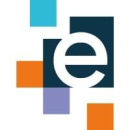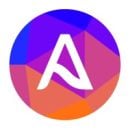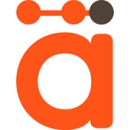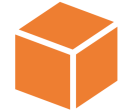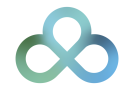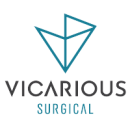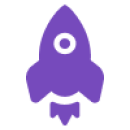Brianna Jayanthi worked as a security guard at Amgen. Meghana Nadig experimented with Excel. Claire Bogdan majored in music and then taught herself to code. Elizabeth Alexander joined her school’s FIRST robotics team. Theresa DuBois was raised by an inquisitive systems engineer.
These five women prove that inspiration and possibility wait behind every corner. While many STEM careers start in competitive computer engineering programs, others launch from more unexpected places. In fact, nonlinear career paths are becoming more common and can benefit employers who hire motivated candidates with varied backgrounds and eclectic skills that match today’s changing corporate needs.
It can be hard for women in tech to start or advance their careers. That’s because although women make up about half of the workforce, they are still largely underrepresented in the STEM fields. Five decades ago, women represented less than 10% of the total STEM workforce. Today, despite an ongoing national conversation about inequality and representation, that number still sits below 30%. Women continue to earn less than men while Black and Hispanic women see the lowest pay among women working in the industry.
Despite this challenging outlook, determined and dynamic women are making a mark on the space. We talked to 15 leaders in Boston to hear more about what it’s really like to pursue a career in tech.
Definitive Healthcare transforms data, analytics and expertise into healthcare commercial intelligence to help businesses grow.
Briefly, tell us a bit about your career journey thus far and what you do at your company.
Like many things in life, it’s necessary to take advantage of the opportunities that are presented. I arrived in the U.S. from Ukraine without an easily transferable master’s degree. My career in quality assurance really started with trying to help my husband at his startup. That is when my talent and abilities were unveiled and my career as a quality assurance software engineer started. From there, I moved from learning the basics to building and managing a quality assurance team of 30 people. The change came with perseverance, and I took opportunities as they came.
How did you originally discover your passion for technology? How did you know you wanted to pursue a career in tech? Be specific.
I found myself in tech when I searched for where my talents and skills intersected. I get a lot of satisfaction from digging for the root cause of any problem and creating a solution. A tech career provides these challenges daily.
I found myself in tech when I searched for where my talents and skills intersected.”
What advice would you give to other women discovering they have an interest in tech and are considering pursuing a career?
Follow your passion. Search for and grab opportunities, because that is where you learn about yourself and build your career.
eClinical Solutions offers products like the elluminate® clinical data platform that leading life science companies use to harness and control their data for meaningful insights.
Briefly, tell us a bit about your career journey thus far and what you do at your company.
I started my career as a biomedical engineer, working with sensor data and developing algorithms for medical devices. This was mostly for cardiovascular and neurological applications and included stints in startups and mid-sized medical device companies as well as academic medical centers. For the past five years, I’ve been focusing on AI/ML applications for healthcare payer and provider data and clinical trials data.
I currently lead the data science team at eClinical Solutions. We work on applying AI/ML and NLP techniques to the problems faced by our life sciences clients, which are typically pharmaceutical and biotech companies. We work closely with our product, engineering, services and business development teams to help automate routines that require a lot of manual effort and to aid with tasks that are typically hard for humans to do.
How did you originally discover your passion for technology? How did you know you wanted to pursue a career in tech? Be specific.
I was an engineering major when I entered college because I liked math and science. I took some classes in biology and physiology and really enjoyed them, so it seemed like a natural step to focus on applying technology to healthcare. I’ve spent my career doing that. I like building useful things with tech.
What advice would you give to other women discovering they have an interest in tech and are considering pursuing a career?
Take the time to explore your interests and know that they may evolve. Work hard and learn as much as you can in whatever you’re tasked with, even if you think those tasks are not relevant to your career interests. You never know when those skills you’ve acquired will come in handy. Don’t be afraid to speak up and advocate for yourself. Work with good people that you can learn from. Network, network, network.
Take the time to explore your interests and know that they may evolve.”
Asimov programs living cells with genetic circuits to advance the design and manufacture of biologics and gene therapies.
Briefly, tell us a bit about your career journey thus far and what you do at your company.
I am a synthetic biologist, which is something I didn’t even know existed when I was first dreaming about what I wanted to be. I’ve been lucky to have foundational leaders in this field as mentors through both my educational and professional careers. I joined Asimov as a scientist in 2020 immediately following my doctoral degree. One of our core values is continuous learning, which has given me many opportunities to gain and hone my skills in many areas. For the past three and a half years I’ve worked on genetic circuit designs and analytical methods. I was also a key contributor to the development of our CHO Edge biologics production platform. Now that our CHO Edge platform has launched, I’m excited about designing new technology platforms and leading a team that will help get cell therapies to patients faster and cheaper.
How did you originally discover your passion for technology? How did you know you wanted to pursue a career in tech? Be specific.
It sounds cheesy, but I don’t think I discovered my passion for technology, specifically biotechnology, as much as I grew it from a series of inter-discipline interactions. One impactful experience I had happened during undergrad. I worked as a security guard for Amgen. Seeing the pieces of basic research, engineering and computer science come together to solve hard problems that help society was a lofty idea that I wanted to be part of. I also nurtured my passion with my education. As a biology major, I worked with electrical engineers building circuits in cells. In my doctoral studies, I discovered a program that brought together systems, synthetic and physical biology to bridge gaps experienced by each group. When I joined Asimov, I found something that merged several disciplines to build the coolest tech yet. That tech is a better way to build with cells. One thing I discovered along this journey is that my passion for building with cells is squarely focused on mammalian cells because they sit in my sweet spot of what is challenging and possible.
I don’t think I discovered my passion for technology, specifically biotechnology, as much as I grew it from a series of inter-discipline interactions.”
What advice would you give to other women discovering they have an interest in tech and are considering pursuing a career?
Take the leap and try something new! Make a move to a new department, company or even a new city. Join the meetup group you’ve been eyeing. But perhaps the most fruitful leap of all is having the courage to say hello and ask your question!
Most of the information about how to move a career forward isn’t found with a Google search. If you don’t already have family or friends in tech, it can be difficult to know how to break barriers. However, most people want to help others. Find someone who has successfully navigated a similar path as the one you are interested in and introduce yourself. Maybe offer that person a cup of coffee first, then ask your questions! Conferences, company-sponsored meetups and professional organizations are all great ways to find someone to ask.
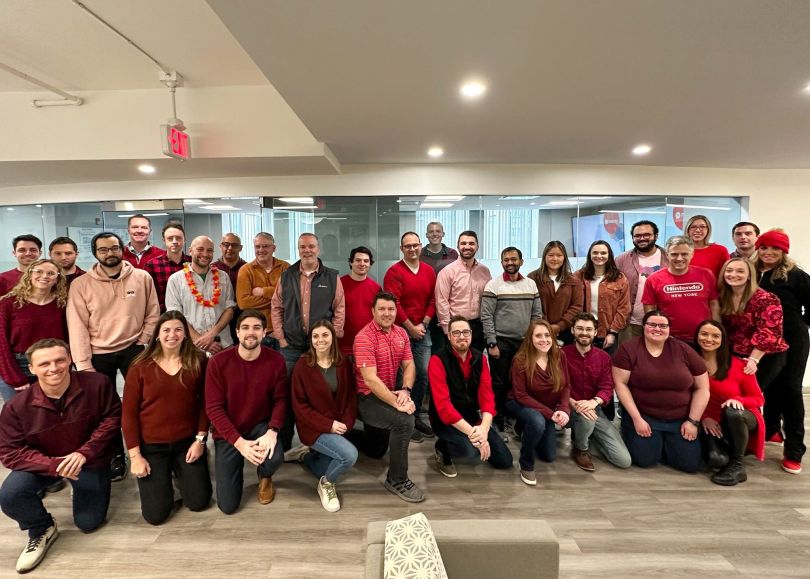
Hi Marley’s AI-driven SMS texting platform simplifies carrier and policyholder data for insurance clients.
Briefly, tell us a bit about your career journey thus far and what you do at your company.
I interned at Hi Marley during the summer before my senior year in end-to-end testing. In January 2020, I was accepted into the Peace Corps in Paraguay and was planning to leave in September. Then COVID-19 hit, the Peace Corps canceled and I graduated without a plan. Luckily, Hi Marley had an open support role and hired me because I knew the product from my internship.
In that role, I learned a lot about using the database to debug customer support issues. At the same time, the engineering team was building out our analytics database and said I could help. By the end of the year, they asked me to join the team as a software engineer. It was a great opportunity, but I was nervous. The team helped me learn skills like SQL, and I took additional online classes to learn how to code. I then applied those lessons at work.
I’ve worked on a variety of analytics projects for the past two years and was recently promoted to software engineer II. I never saw this path for myself, but I’m so happy it worked out this way. At Hi Marley, I fortunately had an open-minded team that believed in me. They never doubted my skill set and encouraged me to figure things out.
How did you originally discover your passion for technology? How did you know you wanted to pursue a career in tech? Be specific.
I have a passion for problem-solving. I went to college for environmental engineering and originally wanted to build solutions for clean drinking water and contribute to something that would positively impact the world. I’ve now learned that software engineering is such a powerful field. There are so many ways to leverage technology to solve problems and make a positive impact.
Software engineering is such a powerful field. There are so many ways to leverage technology to solve problems and make a positive impact.”
My job allows me to discover new solutions every day. A turning point for me was when I was still in support and was asked to help by using SQL to find the root cause of a major bug. We discovered that a word was missing from our welcome message, which was creating a compliance issue and keeping sent messages from reaching our customers. I used my new database skills to help the team find the problem in production and quickly solve a significant issue. It felt like such an accomplishment and I knew I wanted to do more.
I’ve been so lucky to start my career at Hi Marley. Being at a startup allows me to take on new challenges and opportunities that wouldn’t be available at a larger company. That has allowed me to grow fast, learn new skills, accelerate my progress and see the impact of my work early in my career.
What advice would you give to other women discovering they have an interest in tech and are considering pursuing a career?
I hesitated to join engineering at first because it felt daunting. I didn’t know how anything worked. But if you have a good team, I really believe that anyone can learn how to code. It can seem scary, especially for women, because it's typically a male-dominated field. The barrier to entry is effort and being open-minded.
Learning to code can feel hard, confusing and frustrating at first. But if you take a step back, keep calm and have a positive attitude, it will eventually come together. My advice is to keep persevering. It’s worth it.
JellyFish.Co is an engineering management platform that analyzes data to give organizations visibility into their work and their operations.
Briefly, tell us a bit about your career journey thus far and what you do at your company.
I’ve worked at a variety of places and in a variety of areas. I started in low-level systems code, machine learning and graph algorithms, and then moved with the rest of the industry into the web. That work included APIs and JS frameworks and build systems. After I’d been writing code and doing glue work for almost a decade, I started to see that my limiting factor was changing. I was no longer constrained by knowledge of what needed to be done and much more constrained by not having the time to do everything I knew needed to be done. To me, that's the perfect signal that people should start thinking about how to build others' skills. Being in leadership allows you to really help shape teams and their work in powerful ways.
Leadership allows you to really help shape teams and their work in powerful ways.”
My role as an engineering leader at Jellyfish has been illuminating. I’m so passionate about how we do this incredibly hard job, and I’m learning every day about ways we can help ourselves and others to do it more thoughtfully and effectively.
How did you originally discover your passion for technology? How did you know you wanted to pursue a career in tech? Be specific.
I was lucky enough to be surrounded by computers and enthusiasm for them at an early age, and I also had some phenomenal math teachers who stoked my love of puzzles and logic. I started college as a math major and realized soon after that computer science was math with more career options! I had already been obsessed with the early, experimental days of the web. I was reading and writing online journals before people called them blogs. I enjoyed building silly little games and being really active on our college Usenet channels. It took me a decade or two to figure out that my initial passion for social tech emerged because I've always looked for ways to celebrate how people collaborate and build delightful things.
What advice would you give to other women discovering they have an interest in tech and are considering pursuing a career?
I think finding a community that works for you can be so valuable. I’ve been to so many different flavors of in-person and virtual meetups. I’ve tried so many Slack communities and conferences. I have sometimes felt uncomfortable and distinct from the majority presence. Remember that there are so many others who’ve felt that. They will support you and commiserate with you about it if you can just find them! Sometimes that’s a group defined by some part of your identity, sometimes it’s just a small band of previous classmates or teammates and sometimes it’s just one person you admire who will chat about what you’re going through.
More diversity in tech has made my life demonstrably better. We’re coming up with new and better ways to work together and we’re making better things. If you’re ever feeling like you don’t see enough people like you, remember that you can be that person for the next wave of people wondering whether they belong and whether they should build something amazing with nothing but code and their imagination.
Geode Capital Management is an investment management firm that was started in 2001.
Briefly, tell us a bit about your career journey thus far and what you do at your company.
My career journey has been marked by continuous growth in the field of data analytics and engineering. I earned my bachelor’s degree in computer science engineering and went on to pursue a master's degree from Northeastern University.
As a senior data engineer at Geode, I am part of a team that is responsible for ingesting and integrating data from various internal and external sources to make them available for SaaS, proprietary applications and analytics.
How did you originally discover your passion for technology? How did you know you wanted to pursue a career in tech? Be specific.
Growing up watching my mother, an accounts officer, adapt to computerized bookkeeping, I became acquainted with computers. As a teenager, I distinctly recall experimenting with Excel to build simple interfaces to manage my finances. Over time, this interest progressed to Visual Basic for Applications macros and programming. I enjoyed learning firsthand the practical ways in which technology can help automate, simplify and organize our day-to-day tasks.
I enjoyed learning firsthand the practical ways in which technology can help automate, simplify and organize our day-to-day tasks.”
This exploration led me to pursue a career in the field of computer science and software engineering.
What advice would you give to other women discovering they have an interest in tech and are considering pursuing a career?
First, expand education by pursuing relevant courses, certifications and projects to build your skills. Continuous learning is the key to staying competitive in the tech industry. Secondly, build a support network to connect with mentors, peers and communities of women in tech. You can achieve this by attending conferences, tech events and workshops. Finally, overcome self-doubt. Believe in yourself and your potential.
Abacus Insights is a data management solution that harnesses the power of healthcare data to drive better outcomes.
Briefly, tell us a bit about your career journey thus far and what you do at your company.
I work as a product manager at Abacus Insights, where my role is to shape the product’s strategic direction around the company’s mission to break down data silos and drive meaningful change across the healthcare ecosystem. In this role, I am fortunate to be able to deeply understand the pain points of customers in the healthcare sector and drive product enhancements that address real-world challenges and deliver significant value. Healthcare data is often scattered across various systems, making accessing a holistic view of patient information challenging. In my work, I can focus on product features that enable seamless data integration and interoperability between different healthcare entities.
My career path has taken several pivotal turns, which allowed me to reinvent myself. However, the common thread of the journey has been a passion for making a tangible impact. My roots as a teacher led to diving deep into academic research aimed at uplifting underserved communities. Academia introduced me to the magic of data, leading to a career centered on data products and platforms for managing healthcare data.
Academia introduced me to the magic of data, leading to a career centered on data products and platforms for managing healthcare data.”
How did you originally discover your passion for technology? How did you know you wanted to pursue a career in tech? Be specific.
Originally from Ukraine, I landed in the U.S. on a Fulbright scholarship fueled by a passion for creating a positive social impact. I pursued a doctoral degree and fell in love with research design, diving into datasets and extracting insights that make a difference in the real world. Fast forward a decade, and I am now in product management focused on technologies for solving data challenges that recently seemed insurmountable. The fragmented and isolated nature of healthcare data hinders collaboration, robbing patients of a better experience in their healthcare and delaying innovation in medical breakthroughs. What drives and sustains my passion for technology is that my work contributes to breaking down these data silos.
What advice would you give to other women discovering they have an interest in tech and are considering pursuing a career?
My advice to women contemplating a tech career is to embrace the journey of self-discovery and don't shy away from making career-altering decisions or pivots. In the world of technology, change is not only constant but also celebrated. Don’t be afraid to explore various paths, even if it means deviating from your initial trajectory. Embracing change shows growth and adaptability. If your current role is not nurturing your interests and passions, allow yourself to try something different.
Immuta offers a robust data security platform that protects data and provides fast, secure access.
Briefly, tell us a bit about your career journey thus far and what you do at your company.
At heart, I’ve always been a band kid. I started playing the oboe in sixth grade and was the drum major for my high school and college bands. I studied music education at the University of South Carolina, after which I moved to Florida in 2017, where I became a middle school band director in Parkland. Unfortunately, my world was turned upside down during my first year of teaching. The Parkland shooting happened, which was on the same campus as the middle school. I started to rethink everything. However, I pushed on and taught for one more year. In the back of my mind, I knew I needed to make a change. I had never coded before in my life, but my coding-experienced partner and a friend both encouraged me to look into a career in software engineering. So, I quit teaching in 2019, became a freelance oboist in my spare time, and went back to school to pursue a degree in computer science. By October 2020, I found Immuta and was hired as a full-stack software engineer. I’ve had the opportunity to work on various different teams and projects. Most importantly, I’ve been given the time and grace to learn and grow as an engineer. In March of this year, I was promoted to software engineer II!
How did you originally discover your passion for technology? How did you know you wanted to pursue a career in tech? Be specific.
At first, I threw myself into tech without passion. I never coded in my life. I was focused on surviving a career shift from teaching to literally anything else. My music degree didn’t open too many doors other than teaching, so I knew that whatever I was going to do next, I would be starting from scratch — or so I thought. My partner helped me write my first ever “Hello World” program in R. That was overwhelming at the time. However, I told myself that if I was able to teach a teenager how to play the bassoon, I could teach myself to code. As I learned more, I discovered that there were so many parallels between writing code and playing an instrument. Different instruments were just different programming languages — all the fundamentals are basically the same, just a different embouchure or syntax. Having a good tone was writing clean code. Writing unit tests was like playing technical studies in a certain key. Rehearsal was similar to the PR review process. In the end, whether you are writing code or playing an instrument, you are still creating something. That is what I am passionate about: building something out of nothing and working with others to make it great.
Whether you are writing code or playing an instrument, you are still creating something. That is what I am passionate about: building something out of nothing, and working with others to make it great.”
What advice would you give to other women discovering they have an interest in tech and are considering pursuing a career?
Dive in head first! The world of tech can look intimidating due to the sheer amount of technologies, languages, frameworks, algorithms, etc. that you may feel you’ll need to know all at once. This can be paralyzing and prevent people from ever starting. You don’t need to know it all at once — just take the first step and learn one thing at a time. Take advantage of free resources online, like Codecademy and FreeCodeCamp, to see if coding clicks with you. Or, if coding isn’t your cup of tea, you could look into UI/UX, QA or technical writing. Give yourself time to let your brain digest the new concepts, and it is okay if it doesn’t make complete sense the first (or second) time. The trial-and-error process is a huge part of the tech industry — emphasis on the error. You will make mistakes and learn from them, a lot. The good news is that the tech world is changing all the time, so everyone else is learning along with you.
Arcadia.io features a platform that brings insights together for customers looking to advance care and research, drive strategic growth and achieve financial success.
Briefly, tell us a bit about your career journey thus far and what you do at your company.
I started my career in healthcare tech by working for a hospital system doing EHR revenue cycle support. I transitioned to my first implementation role at a startup company and then to my current role at Arcadia as an enterprise implementation manager. My current role includes coordinating between the different teams at Arcadia as well as partnering with customers to implement new Arcadia applications and provide ongoing support and maintenance of live applications.
How did you originally discover your passion for technology? How did you know you wanted to pursue a career in tech? Be specific.
I first discovered my passion for technology when troubleshooting customer support tickets. I loved learning about the pain points a customer was experiencing. My “troubleshooting” has varied drastically between my roles, but included challenging healthcare claims logic, user access issues and even patient experience regarding how confusing healthcare can be. My passion grew into wanting to be “in the room” influencing operational workflows and using technology to automate tasks.
What advice would you give to other women discovering they have an interest in tech and are considering pursuing a career?
Regardless of the specific field in tech, my advice would be to start with one topic of interest and try to become a subject matter expert on it. Learn the reason it was built, what the intended delivery is and how it currently functions. Identify opportunities for enhancements. Continue to add new topics as you go and remember that everyone starts somewhere! I truly believe tech is a world of building blocks. It is constantly evolving, so a mindset of learning will be instrumental in your career.
Tech is a world of building blocks. It is constantly evolving, so a mindset of learning will be instrumental in your career.”
Paperless Parts is a cloud-based sales and quoting platform that is revolutionizing the manufacturing industry.
Briefly, tell us a bit about your career journey thus far and what you do at your company.
As a customer service manager (CSM) at Paperless Parts, I help customers get the most out of the platform by establishing trusted relationships that drive retention. I unexpectedly entered this industry, with no knowledge of this role's existence. I pursued mechanical engineering at Miami University of Ohio, aspiring to become a mechanical engineer at a startup. I joined my university's venture capital team where I competed against other schools at Venture Capital Investment Competitions (VCIC). We were tasked with creating the best term sheet, and I was evaluated by Jason Ray, co-founder & CEO of Paperless Parts. Following the competition, I connected with Jason on LinkedIn and closely followed Paperless Parts' journey. About a year later, I saw a job opening for a CSM.
How did you originally discover your passion for technology? How did you know you wanted to pursue a career in tech? Be specific.
After graduating, I landed a job as a mechanical engineer at a plumbing company, which happened to have an intriguing side project in the form of a SaaS startup umbrella under their main entity. It was a blend of two worlds, and despite not being a mechanical engineer in a startup, I couldn’t resist the chance to dip my toe into the tech realm. After a few months on the job, leadership approached me with an offer to work full-time on the startup. I hesitated at first because this meant that I had to forfeit my mechanical engineer title for that of customer experience manager. The company gave me a three-month window to test the waters, assuring me they wouldn't backfill my engineering role if I decided to return. After those three months, I stayed. Those three months exposed me to so many facets of the business. The experience made me realize the potential that the tech world holds with its constant momentum and evolution. I couldn't resist embracing the chance to be part of it all.
What advice would you give to other women discovering they have an interest in tech and are considering pursuing a career?
As a woman who has constantly been in male-dominated fields, I understand the challenges and opportunities that come with pursuing a career in tech.
As a woman who has constantly been in male-dominated fields, I understand the challenges and opportunities that come with pursuing a career in tech.”
First, embrace your passion for technology. Don't let any preconceived notions or societal biases discourage you. As cliché as it may sound, believe in your ability to make a meaningful impact. Embrace your unique perspective — ultimately, this will drive innovative solutions that only someone with your viewpoint can provide.
Secondly, be confident in your abilities. Recognize that your skills, intelligence and creativity are just as valuable as anyone else’s. When I am the only woman in the room, I like to view it as an opportunity to use my different background to present a new perspective.
Lastly, it is essential to acknowledge that “boys clubs” still exist in some pockets of the tech industry. While progress has been made, systemic barriers and biases can persist. However, it is important not to let these obstacles discourage you. Instead, use them as fuel to break down barriers and pave the way for future generations.
EnterpriseDB (EDB) open source-based data platform with customers like MasterCard, AAA and Siemens.
Briefly, tell us a bit about your career journey thus far and what you do at your company.
I started my career in technology in my early thirties. Prior to that, I had worked as a horseback riding instructor and in a customer support job. While in my customer support job, I took the opportunity to have the company pay for my bachelor's degree. Shortly after graduating, I accepted an offer from Episerver, now Optimizely. In my five years with Episerver, I was promoted from first-tier support in incident management to site reliability engineering and had a lateral move into development for a short stint. Having been an SRE for two years, I had gained enough experience and was ready for new challenges. I interviewed with my current employer, EnterpriseDB (EDB), and was fortunate to secure a position on the SRE team! During the next year, I was promoted to America's site reliability engineering manager. I have been with EDB now for two years, and aside from helping America's engineers reach their own career goals, I also manage our release process for our cloud services, Big Animal Project.
How did you originally discover your passion for technology? How did you know you wanted to pursue a career in tech? Be specific.
Growing up, my father was a systems administrator, and I found I always had some computer part to ask him about or a new program he would be showing us. His enthusiasm for his work is what got me started. When I asked for my first computer, he handed me a manual, a keyboard, and an old black-and-white screen. “Here you go!” he said with a devious smile. If I wanted it, I had to figure out how to do it. I was never intimidated by technology and would jump in when given an opportunity. I didn't recognize this as a passion at the time — technology was a tool that I was fortunate enough to be exposed to early on. I could use it to get what I wanted done without having to manually perform the tasks each time. As a stubborn teen, I refused to see my future doing what my dad did, so I had to go my own way. After 10 years of hating what I did to earn a living, I went to school for computers and got my first job in technology. Here I have found a community of people like myself. I’ve found that my need to help others perfectly aligns with my interest in creating technical solutions. Every day I get to find solutions to problems and develop tools and processes to prevent them in the future.
I’ve found that my need to help others perfectly aligns with my interest in creating technical solutions. Every day I get to find solutions to problems and develop tools and processes to prevent them in the future.”
What advice would you give to other women discovering they have an interest in tech and are considering pursuing a career?
The best advice I can give to women is to find a mentor — someone you work with, a teacher or a fellow peer. Find someone you can count on to give you advice, bounce ideas off of or listen to your self-doubts. You will have self-doubt, but talk it out with your mentor and then pick yourself up and go forward. I had a manager in my first team who, after six months of working in the first line support team, told me about a promotion opportunity. I doubted I was good enough for it. He pushed me to go for it, reminding me to not hold myself back out of fear. Be sure to stand up for each other. Help to create a culture of learning and growing with those around you, and you'll all reach greater heights together. Finally, just give it a shot. Don’t be held back by the critic inside of you. No one wouldn’t be where we are today if they didn’t take those first chances. We need new innovators, new ideas and new technologies but we won't get those if we don't go forward because we are afraid we aren't good enough. Don't be intimidated by your potential greatness; seize every opportunity.
Gradient AI is a provider of artificial intelligence- and machine learning-based solutions created with the insurance industry in mind.
Briefly, tell us a bit about your career journey thus far and what you do at your company.
I was an English major in college and started my career in publishing. I took a job at a tech startup when I felt I wasn’t cut out for marketing. That role morphed into IT because we didn’t have IT and someone needed to do it. I discovered I was wired for it in a professional capacity. I’ve now been working in IT for six years. My current role is IT systems engineer.
How did you originally discover your passion for technology? How did you know you wanted to pursue a career in tech? Be specific.
I was always interested in gadgets as a kid, and as I entered the workforce, that translated well into IT. When the opportunity arose, it really aligned with my love for problem-solving and helping people. I wouldn’t say I pursued it — rather, it unfolded.
I was always interested in gadgets as a kid, and as I entered the workforce, that translated well into IT.”
What advice would you give to other women discovering they have an interest in tech and are considering pursuing a career?
Don’t let intimidation be a factor when entering a male-dominated field. Also, sometimes it pays off to shift your career path.
1upHealth is a healthtech company with a platform that enables payers, providers and others to manage and compute on individual- and population-level patient data.
Briefly, tell us a bit about your career journey thus far and what you do at your company.
After graduating college in just three years with a degree in technical writing, I lived out of a van for six years while working as a commercial river guide in Moab, Utah. To fill the offseason, I found retail work at an outdoor gear shop. One day, the owner asked me about selling online. Without any experience, I offered to be his official web developer. I figured, why not design a website? How hard could it be? I headed to Barnes & Noble to find books on CSS, HTML, PHP and Javascript. After about eight months of self-study, I launched my first e-commerce site. Realizing I could turn a profit by making online stores for other gear shops led me to start HighSide Designs, a web development consultancy. While sharpening my skills, I paid the bills as a guide, private chef, retail salesperson and welder. I eventually landed a full-time position as a junior web developer and then was recruited to become a scrum master. After managing scrum masters and mentoring engineering managers, I was encouraged to become an engineering manager at Auth0 and now work as an engineering manager at 1up.
How did you originally discover your passion for technology? How did you know you wanted to pursue a career in tech? Be specific.
Throughout all of my experiences, one thing remained the same. I thrived off of the “struggle, struggle, struggle, WIN” journey my career path presented. I didn’t know I was going to have a passion for tech when I started.
Oddly enough the “aha moment” is one I remember clearly: It was 2:00 a.m. and I had been writing code for over 16 hours trying to fix a bug. When I finally fixed it, I raised my hands in the air and started celebrating. Even with no one around, I found excitement in the work I did. I was doing the work for myself, and I enjoyed the challenge. I have been chasing dopamine hits with technology ever since.
What advice would you give to other women discovering they have an interest in tech and are considering pursuing a career?
Imposter syndrome runs rampant in our industry. It impacts everyone differently, and everyone has it. Imposter syndrome is real, and we all have to find ways to deal with it in our own way.
Imposter syndrome is real, and we all have to find ways to deal with it in our own way.”
Vicarious Surgical is a next-generation robotics company developing a disruptive technology with the goals of increasing the efficiency of surgical procedures, improving patient outcomes and reducing healthcare costs.
Briefly, tell us a bit about your career journey thus far and what you do at your company.
Before coming to Vicarious Surgical, I held positions as a mechanical engineer in a variety of industries including automotive, robotics and consumer electronics. In undergrad, I was a double major in mechanical engineering and robotics engineering at Worcester Polytechnic Institute, and I completed my master’s degree in mechanical engineering at Tufts University. During my studies, I held a variety of internships which were foundational to launching my career in this field. The experience of designing automated equipment used for the storage of biological samples helped me validate my passion for robotics. Since I was always interested in medical devices, I feel fortunate to work at Vicarious Surgical where I contribute to the design of a highly complex instrument. It’s exciting to know that surgeons will use these instruments to perform surgical procedures to improve the lives of patients.
It’s exciting to know that surgeons will use these instruments to perform surgical procedures to improve the lives of patients.”
How did you originally discover your passion for technology? How did you know you wanted to pursue a career in tech? Be specific.
As the daughter of two mechanical engineers, we always joked that I was doomed to end up as one too. But really, I didn’t grow up knowing that this field was for me. I was more interested in art than in taking things apart. I was lucky enough to end up at an engineering summer camp at Ohio State University where we acted out sorting algorithms and built hovercrafts, and I started to think engineering was pretty great. Joining my school’s FIRST Robotics team in high school only solidified my interest, and the rest is history!
What advice would you give to other women discovering they have an interest in tech and are considering pursuing a career?
Go for it! It’s hard to imagine a better career than one where you get to solve interesting problems. Build a strong foundation and solid understanding of math and science. Engineering is a broad field, so take the time to explore your interests and discover what feels like the best fit for you.
LogRocket’s platform records and logs user sessions to help teams create exceptional product experiences.
Briefly, tell us a bit about your career journey thus far and what you do at your company.
My career has taken a winding path thus far, even though I have been a professional for a mere five years. After graduating from Marist College with a Bachelor of Science in computer science, I joined a startup called Quadrant Biosciences as a software engineer. I worked with a team of four engineers to build automated pipelines for analyzing microRNA on our autism testing product, Clarify. After two years, I decided to move to Boston and started working at LogRocket as a senior software engineer.
As part of the engineering team, I worked on the analytics product doing frontend React and backend NodeJS and Python work. After about a year and a half in that role, an opportunity arose for me to join the product team here. This was something totally new and exciting to me, so I accepted the challenge! As the product manager of our analytics product, I now work closely with design, engineering and product leadership each day to research, design and build new and useful features for our analytics platform.
Once I experienced the thrill of writing and running debugging code, I was hooked! I loved the way that programming required me to break problems into pieces that could be coded.”
How did you originally discover your passion for technology?
I was introduced to technology, and more specifically programming, for the first time in my Introduction to Computer Science class in high school. We started with the basics by writing simple scripts in Java. At times, we were using a drag-and-drop code platform called Scratch. Once I began to take on slightly larger projects and experienced the thrill of writing and running debugging code, I was hooked! I loved the way that programming required me to break problems into pieces that could be coded, and I loved the problem-solving that was required when something went wrong in my code. In college, I decided to major in computer science, but I certainly had doubts about whether it was the right field for me. At times, I felt like an imposter since I was not interested in spending all my spare time reading about coding. I ultimately realized that the continuous learning and focus required to be a great engineer were well aligned with my personality and work style. Thus, being an engineer was certainly the right place for me to start.
What advice would you give to other women discovering they have an interest in tech and are considering pursuing a career?
My first recommendation is to keep in mind that the job you start with in tech certainly does not have to be the last. The field of technology is vast, and there will always be opportunities to move around. I would also recommend talking to as many people, and women in particular, as you can throughout your career. As you make connections and hear about openings, it will become easier to navigate the tech space and find what most interests you. Finally, I recommend not only focusing on what technology interests you but also on what part of being an engineer interests you the most.





